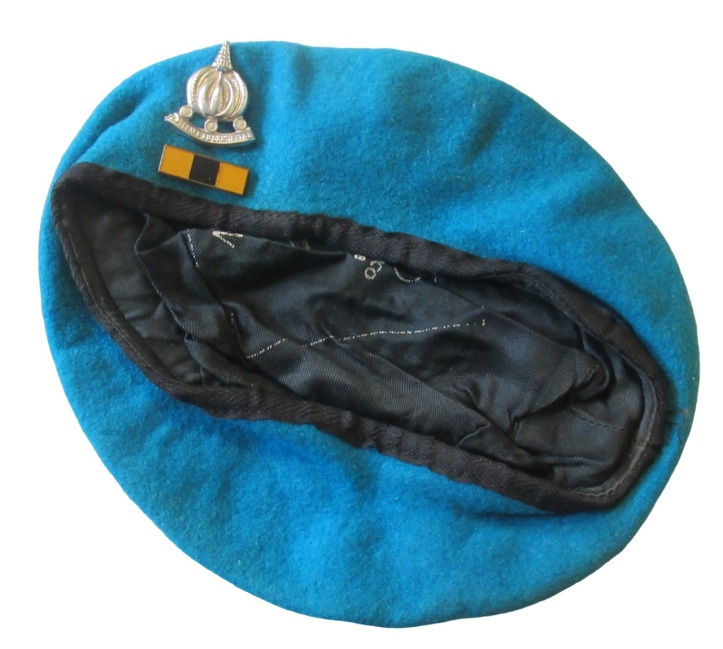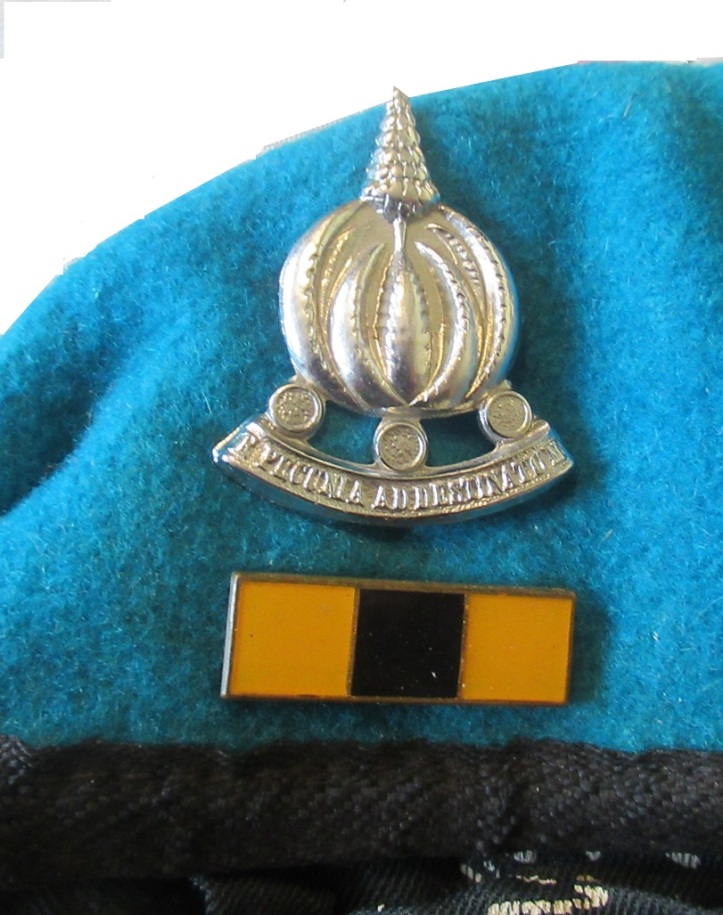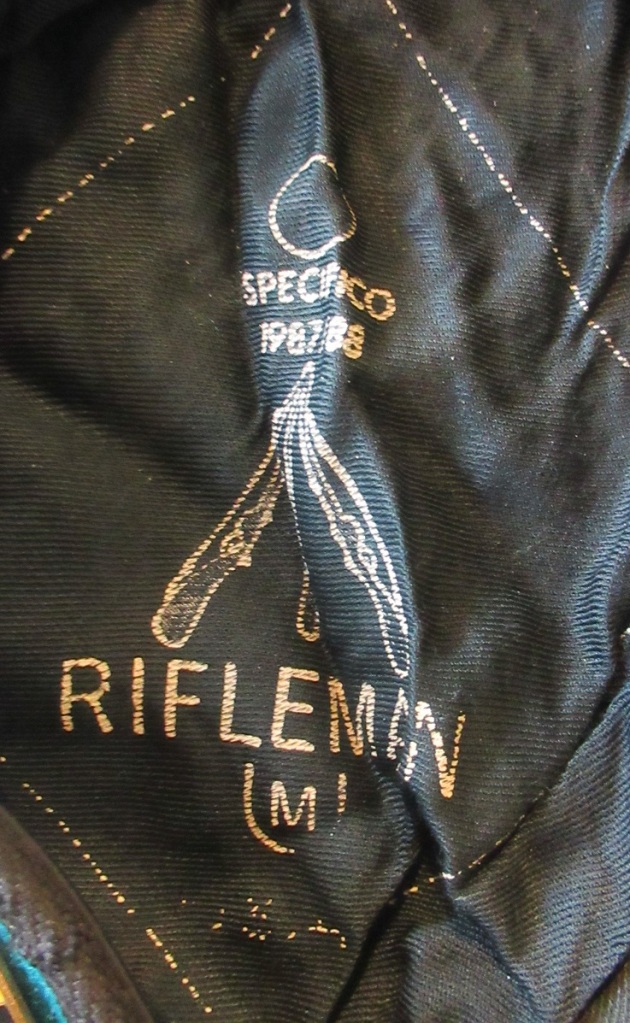Although hardly glamorous and overlooked by most, all armies need to have an administrative tail to deal with matters relating to their personnel. For the ordinary men of any army, their pay is of primary concern- men who are not paid timely and correctly grumble and suffer poor morale so most armies have a pay corps to manage the financial affairs of their service. The South African Defence Force was no different and they had a dedicated service known as the Financial Services Corps. The Financial Services Corps adopted a turquoise beret that was quite distinctive amongst the many different items of headdress then in use with the SADF:
The cap badge is made of white metal with a tri-colour corps band below:
The interior of the beret is lined in black and has a white stamp indicating it was made in 1987 or 1988:
Martin Glass was one of those who served in the South African Finance Corps as part of his national service before being called back up when the Bush War grew in intensity:
October to December 1969
The writer and his friends then moved to a new officers’ mess adjacent to Defence Headquarters, where each man had a private room and their meals were prepared by a professional chef, who also catered lunches at the mess for the ‘top brass’ from Defence Headquarters. Prior to the young officers taking up their new accommodation, the former residents, a group of students, had become so incensed on hearing that the Army was moving in that they had dumped an ageing Volkswagen Beetle into the swimming pool. The motor vehicle still languished there when the writer and his friends arrived. Upon their promotion, their army pay had increased from 50 cents per day to the princely sum of R1 ,50 per day. Thus, the young one-pippers lived a good life, working hard, but not too hard, and were able to spend every weekend at home in Johannesburg.
It was at that time that the writer was introduced to information technology, then still in its infancy. The Chief Paymaster had recently installed an IBM mainframe computer, and one of the duties of the young 2/Lt Glass was to write up forms to be ‘punched’ by a ‘punch lady’ on to a ‘punch card’, which was then fed into the computer. Occasionally, he was called upon to stand as Assistant Guard Officer at Defence Headquarters and, on one such occasion, a Saturday, he remembers hearing the wailing of ambulance sirens due, it turned out, to the collapse of a grandstand at Loftus Versveld Rugby Stadium and consequent injury to the unfortunate spectators.
The writer had volunteered for twelve months’ service, as opposed to the usual nine months, so that he would not have to attend annual camps, according to an undertaking by the SADF. On completion of his national service in December 1969, he was looking forward to attending university the following year, but felt a definite twinge of regret at taking leave of the friends that he had made during his service.
The writer found national service to be an enriching experience which admirably bridged the gap between school and the real world and invested him with lasting qualities of discipline, maturity and tolerance.
January to April 1977
In 1977, when South African forces were in action in cross-border operations in Angola during the Border War, the writer was recalled to his unit, which had been renamed, somewhat grandly, the Finance Corps, to help sort out problems that had arisen with regard to the payment of the troops on active service and their dependants back home.
Apart from the inevitable computer software glitches, another problem was that the personnel on active service, who earned R 1,33 per day, were allowed to retain R1,00 for themselves (which they invariably did) to pay for beers and other goodies. The wife, in consequence, was left with the impossible task, even then, of feeding, housing and clothing herself and the children on 33 cents per day, hence the frantic and usually abusive telephone calls that had to be fielded from distraught wives.
Now men in their mid-twenties, many with university and other qualifications, the writer and his friends found it quite difficult to readjust to the military way of life. They were also informed that their previous appointments as second lieutenants had only been temporary and that they would revert to the earlier rank of corporal. Despite these setbacks, they served out their three month stint to the best of their ability. While some might consider them to have been mere pen pushers, the writer believes that, given the importance of a soldier’s pay, he and his friends made a significant contribution to the welfare of military personnel and their dependants.


